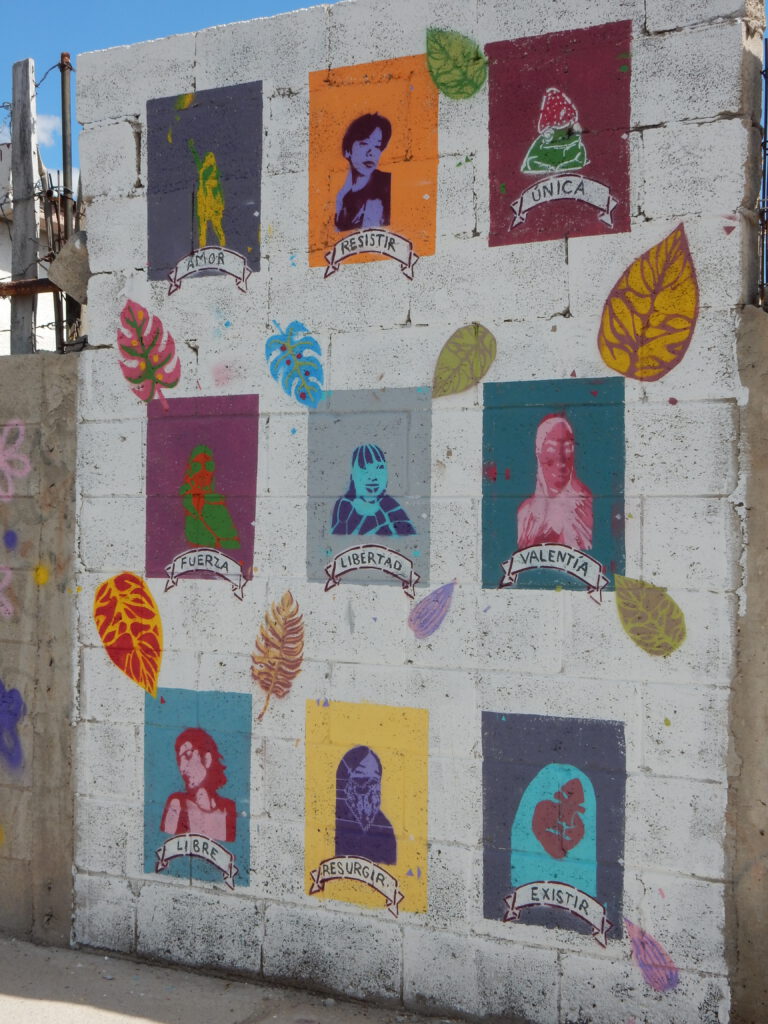
Aus dem Blog unserer Reise nach Mexiko 2022
By Rosa Philipp
This day was all about maquilas. We went with Veronica Corchado (longterm feminist activist & former director of the municipal women´s institute) to Riveras del Bravo (district of Ciudad Juárez). First, Veronica explained to us how Ciudad Juárez has developed and grown a lot in the last few years, also because of the maquilas and the construction of settlements for the workers of the maquila. Maquilas are production facilities where products are processed for export under very exploitative conditions. The workers get a loan for a simple, poorly built house, which puts their families in debt for many years. In addition, the settlements are poorly connected or not connected at all to the public network, so they often have no electricity, water or other infrastructure, and there are no social facilities such as schools or hospitals. On the drive through Riveras del Bravo, we only saw staff buses, many of which take the workers to the maquilas, and not a single public transport bus, which symbolizes the lack of public transport. When we were on the road in Riveras del Bravo, Vero also explained to us that some of the settlements are also subject to frequent flooding. The poor conditions in the settlements cause families to leave the houses again.
In Juárez there are over 30 industrial parks with maquilas run by companies operating worldwide. This makes Ciudad Juárez the most economically productive city in the state of Chihuahua and yet the poorest. To illustrate the worldwide networking and dependencies, Vero says that one product from Juárez can be found in every house in the world and therefore every person in the world has something to do with Juárez and bears responsibility for the situation here. On the way to Riveras del Bravo, we also passed one of the border bridges where 24-hour trucks with products from and for the maquilas are parked, showing us the dimensions of the maquilas. Juárez is like a microcosm, where injustice, violence and exploitation are evident, and at the same time the civil population is strong.
Hope is given in Riveras del Bravo by the collective La Promesa, who are based there and some of them we were allowed to meet and gave us an insight into their work. The street where the beautiful, ecologically built adobe house stands is full of graffiti from art projects and is also used as a marketplace to reclaim public space. Violence is and has been very present here, we are told that the barrels of cement were meant to serve as a blockade to prevent shootings from taking place. The house grew out of an art project and is a place for healing and community. The collective works with young people to prevent them from falling into criminal structures and makes prints with the young people for T-shirts, bags and mugs, for example, and helps them to sell them. In addition, the collective also accompanies women who work in maquilas or as housewives and offers different workshops for them to learn crafts (jewellery making, sewing, etc.) and create products. These are marketed to women from high-income households so that they can improve the poor wages of the maquilas.
Finally, we ate excellent Italian food in the restaurant run by the Mangiarte collective.
